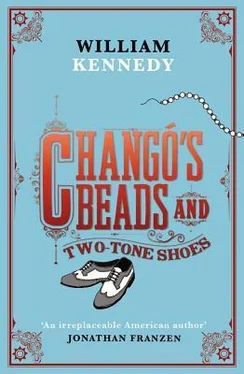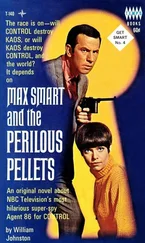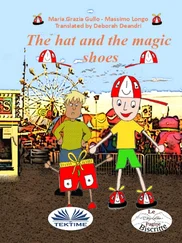“Look out, Albany,” Matt said. “Here comes George Quinn.”

What Danny said was, “There’s the Club, right up those steps, okay?”
Of course it’s okay.
“It’s two forty-five. I’ll meet you at the Club bar at six o’clock. You have your watch?”
Of course I have my watch. And George got out of the car and took two steps toward the Club, and when Danny pulled away George turned around to watch him go. He looked up and down the block for the Club, crossed State Street and walked down the hill and crossed Pearl Street. Steps is what Danny said. Steps loomed. Five of them. Brown. Nobody outside. He pushed open the door and walked across the mottled marble. He stopped and stared at all the glass and brass.
“Can I help you, sir?”
“The Club.”
“Which club might that be, sir?”
“It’s right up to snuff.”
“This is a bank, sir. Do you have an account with us?”
“I certainly do.”
“Fine. Let me take you to a teller. Your name?”
“My name for what?”
“The name on your account.”
“George Quinn.”
“Welcome to the New York State Bank, Mr. Quinn. I’ll check your account for you.”
“It’s right up to snuff.”
“I’m sure it is.”
George took his wallet from his back pocket and opened it to find two five-dollar bills. He poked a finger into a pocket of the wallet and pulled out a check. He opened it and read his name on the check.
“Right over here. You can write your check right here. Here’s the pen. Is there anything else I can do for you?”
“What else is there?”
“How much would you like to write this check for, Mr. Quinn?”
“It’s got to be enough.”
“I hope it will be.”
George poised the pen over the check and thought about numbers, then wrote “two hundred” on a blank line. He put down the pen and handed the check to the man at his elbow.
“You have to sign it, sir.”
George looked at the check and picked up the pen. He signed “George,” and gave the check to the man.
“Your full name, Mr. Quinn.”
George wrote “Quinn” after “George.”
“Now fill in the amount with numbers,” said the man. “Two hundred, in numbers. Two-oh-oh.”
George wrote “200” and handed the check to the man, who took it to a teller. He came back and handed the check to George.
“I’m sorry, Mr. Quinn. I can’t cash this. This is one of our checks but your account here was closed last year. Perhaps you have an account in the Albany Savings Bank or the National Savings, or City and County? Mechanics and Farmers? Do any of those banks sound familiar to you?”
“My bank is close to the Club.”
“I’m not sure which club you mean.”
“Why the hell are you in business if you won’t cash a check and don’t know where the hell anything is?”
“Shall I call Albany Savings for you? I could have someone walk you over there.”
“Don’t bother,” said George, and he went out. He looked up State Street at the Capitol, which he had watched burn in 1911 and he wondered if they ever finished rebuilding the damn thing. Yes, and maybe no. He had worked in the Document Room when Jimmy Walker was a senator and Al Smith ran the Assembly. Big Bill Sulzer wasn’t around yet, was he? It was Al who was the big man. Get me the World, the Sun, the Times and the Tribune, Georgie, Al would say. Big smile on his kisser. Here’s a dollar and you keep the change.
George crossed State and looked at Van Vechten Hall and thought of going to Beauman’s to meet the ladies, but it’s early, isn’t it? He felt for his vest pocket watch, no vest, no pocket, no watch. Wrist? There it is and it’s three o’clock, too early. Beauman’s musicians don’t set up until seven.
“Hello, George,” a fellow said.
“Hellee, helloo Brzt, Bitts, Billdy,” what the hell is his name?
“Where you off to?”
“The Club,” George said.
“You got time for a cuppa coffee?”
“All right,” said George. Bradz, Bonzi, Bunzy turned into the Waldorf Cafeteria and George followed him in, took a ticket. Crenzy ordered the coffee.
“I was talking to the sheriff yesterday,” Renzi said when they sat down. Renzi. “He says you’re not coming back to work. I told him, George’ll come back when he’s well. I don’t think so, he said. I told him, you don’t go through two cataract operations and get right back at it. George is recovering.”
“That’s how it is,” George said. “I got these new glasses, and eye drops,” and he showed Renzi his eye drops.
“Just passing on what he said. Just so you know, George. I don’t think it’s good news. Give him a call.”
“I’ll do that,” George said.
“What’d you think about Bobby Kennedy?”
“I voted for him. Patsy passed the word to cut him, but I voted for him. I’d vote for anybody named Kennedy.”
“They shot him.”
“Who shot him?”
“Some guy, I don’t know who. But they caught him right away. He’s probably a communist.”
“Kennedy’s not a communist.”
“Get the paper, Georgie. It’s all in the paper. After midnight last night, out in L.A. He just won the primary and they shot him.”
“Who won the primary?”
“Bobby.”
“They shot him because he won the primary?”
“Probably.”
“I voted for him.”
“Call the sheriff and ask him when he expects you back to work,” Renzi said. “I’ll pay for the coffee,” and he took George’s ticket.
“They don’t shoot you when you win a primary,” George said to Renzi’s back. But Renzi kept walking and George didn’t like the coffee. He went back out onto State Street and stared up at the Capitol. I saw that burn in 1911, the State Library. Two or three days it burned, maybe a week. He walked toward the Capitol and looked over at The Tub, the hotel where Al Smith stayed. The sign is down. Al doesn’t have to stay there anymore. Al didn’t have much money then but he’s got it now. When Bobby Kennedy came to Albany, George was there. Wasn’t I? I was there for Truman when he came in on the back end of a train. I was there when Adlai’s train came in and he talked to the crowd from the station platform at Columbia Street. When did Bobby come? His old man owns the Standard Building. Bootlegging, that’s how the Kennedys got their money. It was Jack they shot, not Bobby. I was there when Jack came to Albany to have lunch. His father asked Patsy for an endorsement, and Patsy backed him all the way. Patsy never liked FDR, but he backed Jack. That’s how Jack got to be president. They didn’t cut Jack. George crossed State at Eagle Street and walked toward City Hall and past it. Here comes somebody. Vih. Vivuh. Viv. Vivian. Nice Vivvie.
“Hello, Georgie,” the woman said. She was wearing a yellow straw hat.
“Hello, Vivvie,” George said, and he tipped his hat. “Going to Beauman’s, are you?”
Vivian stopped. “Oh, I wish,” she said. “Beauman’s. Those were the days. No, Georgie, just going over to Cody’s and meet a friend.”
“Cody’s.”
“Cody’s Havana, you know it well. No Beauman’s. No more.”
“Havana? I know it. Beauman’s.” Vivian walked on and George watched her go. She had legs like. Legs. Like. I’m tying the leaves so they won’t fall down and Nellie won’t go away. Pag. Pog. Legs like Peg. George turned and saw the Court House and he stopped. Can’t go there. Why not? George turned back toward City Hall and saw the Chedge coming out. Chedge Epstein and somebody. Fitz. No. Fitzmayor. No. The Mayor. They saw him coming and waited at the corner. George crossed to meet them.
Читать дальше













